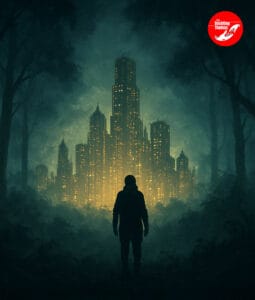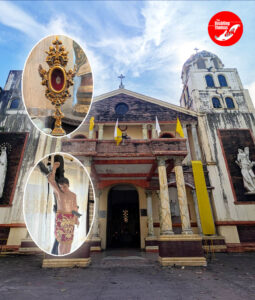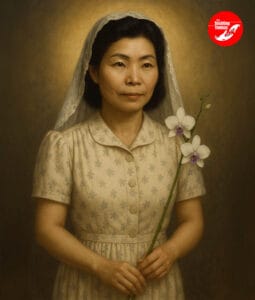This behavior scandalized the gods, and so, Aruru or Ninhursag created Enkidu out of clay spittle and placed him to grow in the wilderness among animals. Enkidu, being a wild man, at least befriended some men especially the Hunter who brought him to Shamhat, a temple prostitute who somewhat tamed him. In his protection of these friends the now chivalrous Enkidu ventured into the city of Uruk where he meets Gilgamesh, the king for the first time and is challenged to fight him.
In the ensuing contest between the two, both found they were equally matched and became friends instead, even soulmates. Enkidu, the wild man became more civil living in the city while Gilgamesh, became more chivalrous because of his newfound friend. Then they decide upon Gilgamesh’s insistence to go on an adventure to kill Humbaba or Huwawa, the guard monster of Lebanon’s sacred cedar forest. They were able to slay Enlil’s keeper of the forest and went home to Uruk as heroes. However, Gilgamesh and Enkidu angered the gods and they plot to make their revenge for their having slain Humbaba.
The goddess Inanna on other hand becomes enamored with the demi-god Gilgamesh and proposed to become his wife especially with her feat of reacquiring the Hulappu tree of wisdom after the defeated the evil spirits which lived therein. Gilgamesh rejected her and the spurned woman sought revenge. It was a timely request and the gods gladly obliged and sends a great auroch bull from heaven to kill him them both. Gilgamesh however, with the help of Enkidu were able to kill the bull of heaven. A piece of the bull’s meat was thrown at Inanna to insult her further. This was the last straw for the goddess and she insisted that the two friends be punished by the gods. Finally, the gods complied and caused the death of Enkidu with Gilgamesh’s punishment as that of a grieving person for the first time in his life.
Likewise, his death left Gilgamesh grieving because he was his only friend, the only person he could relate with as an equal and made him realize the futility of mortal living as he was only two-thirds god. Hence, he decided to leave his kingdom to search for that which could bring him true immortality. In his search, he came upon the goddess Siduri, disguised as a barkeep who tried to discourage him. Threatening to use his brute force again, the goddess finally told him to find Ushanabi, the boatman. Ushanabi helped him in his search for Manu or Utnapishtim, the survivor of the Great Flood and was renowned for being an immortal. But first he had to meet the Girtablilu, the scorpion people who guard the gate of the Shamash or Utu, the sun god.
When he finally came to meet him, he learned about the great flood which his grandparents Lugalbanda and Nirsin experienced. Utnapishtim was tasked by Enlil to build the caracol, the round boat which made the living things of the land survive the deluge made by Enki or Ea. Utnapishtim revealed to Gilgamesh the plant found only in the depth of the sea as that which could endow immortality. Gilgamesh sets out for this journey and with a few more adventures showing his superhuman strength he was able to obtain it.
Ecstatic that he will soon be immortal, Gilgamesh saw a spring where he could refresh himself from the lengthy journey and placed the plant of immortality just close by. However, as he was enjoying the freshwater, the serpent came and ate it and escaped at once thus depriving him of his true quest. Gilgamesh realized that it was all his efforts were all futile and that he too, have to die in spite of his being a demi-god.
A study of the epic is deemed important by the Sanhedrin because of the following reasons:
1. The epic’s obvious link to the bible considering;
a. Similarity of the flood story to the story of Noah.
b. Possible identification of Cush with Kish
c. Identification of Uruk as a city near Abram’s Ur
d. Link between the tree of wisdom and plant of life to the tree of knowledge and tree of life (the Hulappu tree)
e. A serpent’s intervention
2. Recurring identification of the anunnaki with
a. The Nephilim or fallen angels
b. The giants of renown
c. Alien life according to those who believe in UFVs
3. Parallel stories of descent into the Netherworld or Hell in other cultures
We, at Sanhedrin consider the parallels as evidence of a Sumerian historical past with its events and characters glossed with mythology. Gilgamesh can be an actual historical figure with the temperament and genes of a giant. It is even possible that he is the arrogant Nimrod (the city of Nimrud is named after him) of the tower of Babel story. Utnapishtim on the other hand may as well be just one of the descendants of Noah since his flood story had been convoluted. The hero’s description of being 2/3 god (and therefore, 1/3 man) would mean that he is an Anunnaki or a descendant of the Nephilim, the fallen ones, or the Watchers in the Book of Enoch. In fact, his giant stature and lustful nature is proof of this. His being an alien from outer space is not borne out in our opinion.
If Uruk a riverside city of is close to Ur, a seaside port city from where Abram set forth to become Abraham, then the setting also falls into place as Uruk is also a city of abomination where the goddess had her temple and even planting her favorite Hulappu tree. At least three evil spirits inhabited it when it grew up. Quite expected, the serpent is one of them and she had to ask the help of Gilgamesh to liberate it. Unfortunately, in the course of battle, it died and Gilgamesh just made furniture out of it fit for the queen.
The presence of alien life which is quite different from the morphology of humans is also present in the epic through the Girtablilu. Babylonian or Mesopotamian literature is full of Apkallus or half-human demi-gods with animal features. Yet, despite their physical attributes they are considered sages and could intimate valuable information like what the scorpion men did to Gilgamesh. Enkidu himself could qualify as an apkallu as he is characterized as a hairy horned man similar to the Greek satyr although he didn’t have hooves. The writers however are more inclined to define them as simple demons and not as outer space aliens which is their common disguise. Lastly, what is striking again is the stealth of the serpent which steals immortality again from the hero as the serpent did also to Adam.
Dale St. Oz
Rico del Sol
Daniel Santos





